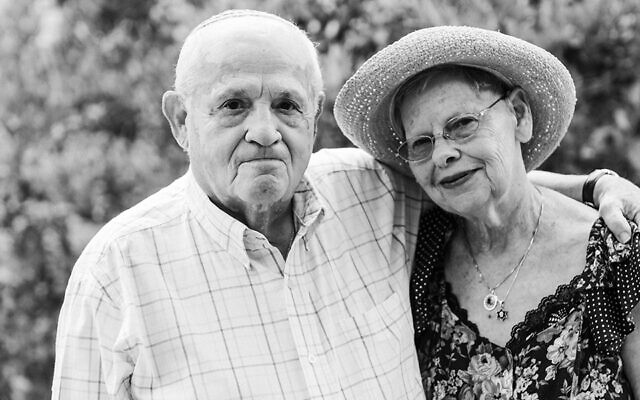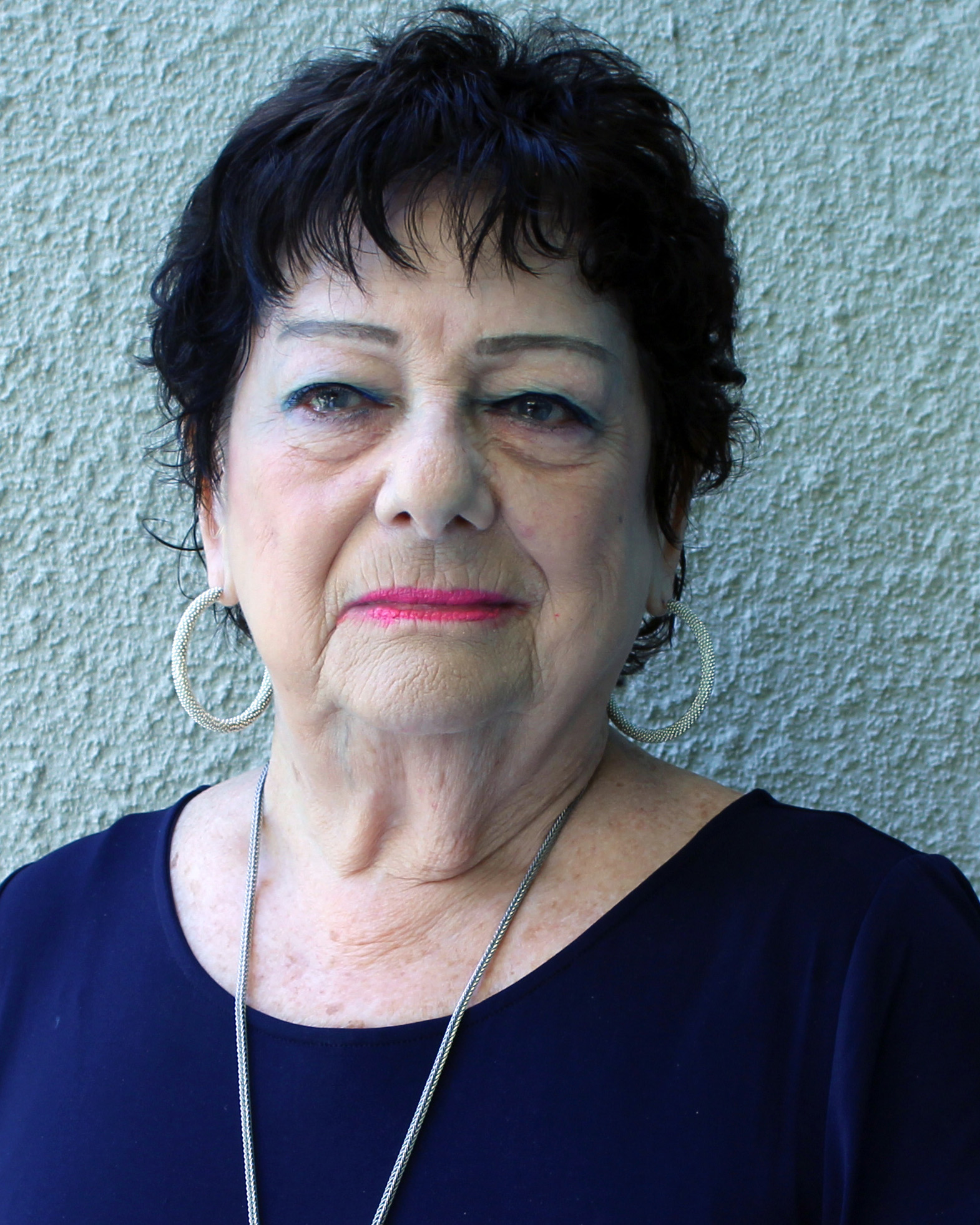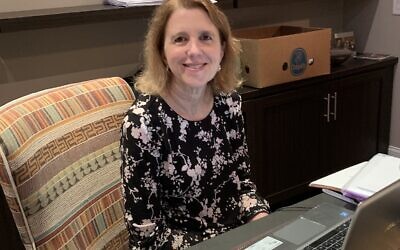COVID-19 Stress Tests Holocaust Survivors
As a subset of the elderly, already among the most vulnerable to the coronavirus, survivors cope with decades-old memories.
Dave Schechter is a veteran journalist whose career includes writing and producing reports from Israel and elsewhere in the Middle East.

“I am scared that I’m going to die from depression, all by myself and nobody will know about it, and this is how my story is going to end. I’ve survived the Holocaust and I’ve seen the world at its worst. This is not how it’s supposed to end.”
Those plaintive words, spoken by a woman in her early 90s who hid from the Nazis as a teen in eastern Europe, were shared by a case manager from Jewish Family & Career Services, who took care not to divulge any further identifying information about her client.
For Holocaust survivors, including some who later lived under Communist rule, COVID-19 has brought a mixed bag of old traumas sparked anew, depression and anxiety, isolation and fear, but also reminders of the traits that sustained them through difficult periods in their lives.
“Some are faring quite well. It’s a very resilient group. To have survived the Holocaust, you had to show tremendous resilience,” said Amy Neuman, JF&CS’s Holocaust services program manager. “Some clients have a lot of trouble. It’s getting worse as the weeks go on, as people are forced to stay home. There are some that are re-traumatized, bringing back memories of forced confinement, whether they were in ghettos or hiding somewhere or in camps.

“People we’ve never seen expressing depression and anxiety are now on our radar,” Neuman said. “Case managers are checking much more than they did before the pandemic.”
Bebe Forehand, sometimes referred to as the “Anne Frank of Belgium” because of the three years that she and her family spent hiding in a 12-by-14-foot attic, finds perspective in the past. “You can’t compare my time in the attic to now. It’s like comparing a Motel 6 to the Ritz. In the attic, it was cold with only a pot-bellied stove to keep the front of us warm. We didn’t have a phone. We couldn’t talk to our friends. There was hardly any food. Now, though I have to stay inside, I have a lovely apartment, plenty to eat, and a television. I don’t have to worry about a truck coming to get us at our house and no one is shooting at us. It’s an awful time now, but you can’t compare then and now,” said Forehand, a speaker in the William Breman Jewish Heritage Museum’s “Bearing Witness” series.
JF&CS describes the services it provides survivors as “person-centered and trauma- informed,” recognizing that every survivor’s experience was different. “We treat each of them individually. We look at what they need,” said Anat Granath, a licensed master social worker with 15 years of experience at JF&CS aiding Holocaust survivors.

Since JF&CS halted in-person work in mid-March, Granath has stayed in touch with her clients by phone, email, and for those able, video conferencing. “Initially, there was a lot of resilience, ‘We’ve been through wars and we can do this. We have food. We have phones.’ Justifying to themselves that this situation is so much better. ‘We have survived so much worse than this.’ The last week or two I’m hearing more frustration, high levels of anxiety, depression,” she said. COVID-19 has brought some survivors “dreams of the past, . . . feelings that they haven’t even thought about in over five decades,” and, in some cases, nightmares.
Case managers Granath and Emily Papera check on their clients’ access to food, medication and personal supplies, as well as their capability to access programming that JF&CS makes available online.
“We listen,” Granath said. “We listen a lot. That’s what we can do. We talk to them. We also let them know that, unlike the Holocaust, the whole world is suffering from this. There’s not really discrimination of age, of gender, of religion. Yes, the elderly are in the high-risk group. But the virus is not against the elderly. We talk about how around the world, people are coming together to protect the elderly. I try to give them some comfort in that,” she said.
JF&CS has the names of about 210 survivors in its database, but Neuman thinks there maybe closer to 300 in the Atlanta area and elsewhere in Georgia. Even as their overall numbers continues to decline, JF&CS continues to enroll Holocaust survivors in its programs, including newcomers who have moved to Georgia to be closer to their adult children and others who may not have needed those services until now.
Of 136 survivors currently receiving essential services and case management from JF&CS, 75 percent are from the former Soviet Union. They generally are in their late 70s and early 80s, on average several years younger than those from Eastern Europe. When added to survivors JF&CS helps through a national program providing home care services and those who access social programming or reparations assistance, the agency has served more than 200 Holocaust survivors in its current fiscal year, Neuman said.
Funding for JF&CS services comes from the Conference on Jewish Material Claims Against Germany, the Harry and Jeanette Weinberg Holocaust Survivors Emergency Assistance Fund, and the Holocaust Survivor Support Fund of the Jewish Federation of Greater Atlanta.

COVID-19 forced cancellation of the April 19 annual Yom Hashoah observance, sponsored by Eternal Life-Hemshech at the Memorial to The Six Million at Greenwood Ceretery. Eternal Life-Hemshech and The Breman Museum, a co-sponsor, have posted online recorded remarks by Ilse Eichner Reiner, a native of Czechoslovakia who survived the Theresienstadt and Auschwitz concentration camps, and was to have been the keynote speaker.
A client from the former Soviet Union, who survived the Holocaust, told Granath how the April 1986 meltdown of the nuclear reactor at Chernobyl, in the former Ukrainian Soviet Socialist Republic, led to issues of food insecurity and distrust of government statements.
“They’re very resourceful, the survivors from the former Soviet Union,” exchanging information on how to make masks, how to make disinfectants, and what works if soap is not available, Granath said. Life under Communism made them more able “to be creative at an older age than some of the clients who left Europe as teens and then lived in the United States, with all that we have here.”
Food insecurity has not been a problem for most of the survivors. “Fortunately, many of them have family in town and some of them live in buildings with congregant meals,” and if that service has been suspended, meals are brought to their rooms. “We haven’t found many that need our food service,” Neuman said. “We have many clients that get home care, who get house cleaning. We want to make sure that services have not been discontinued by the vendor. We have some that have stopped services by their own choosing, who don’t want people in their homes.”
Neuman paraphrased the worries expressed by survivors who live alone or are restricted to their apartments in senior residences that have barred even family visits. “We don’t know if we’ll ever see our families again. Will we be able to leave our apartments again? I don’t know if I will ever see you again,” meaning the case managers.
Asked what the community can do to aid the survivors during the COVID-19 crisis, Granath said, “If you know an elder, if it’s your neighbor, . . . pick up the phone and not only once, but call them again. All we can do it let them know that they are not alone. We are all going through this together.”
- Yom HaShoah
- holocaust
- Holocaust Remembrance Day
- Survivors
- Anat Granath
- Jewish Family and Career Services
- Amy Neuman
- Bebe Forehand
- Emily Papera
- Conference on Jewish Material Claims Against Germany
- Harry and Jeanette Weinberg Holocaust Survivors Emergency Assistance Fund
- Holocaust Survivor Support Fund of the Jewish Federation of Greater Atlanta
- Eternal Life Hemshech
- Memorial to The Six Million at Greenwood Ceretery
- The William Breman Jewish Heritage Museum
- Coronavirus
- COVID-19



comments